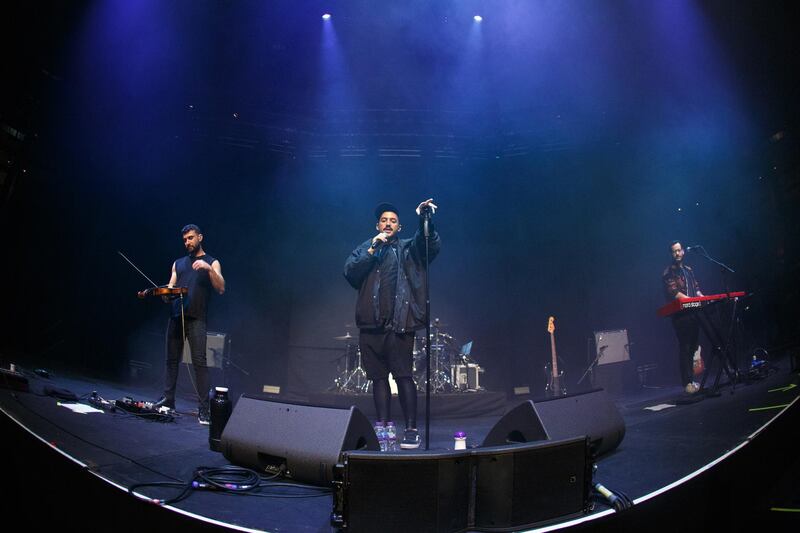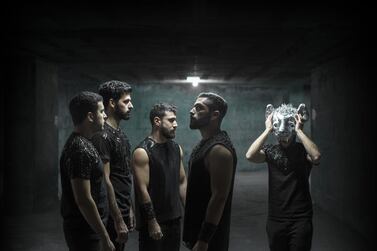Mashrou' Leila, the Lebanese indie-pop quartet, released an English version of their single Cavalry just a few days after the initial Arabic music video. This is their second collaboration with Lebanese filmmaker Jessy Moussallem.
Aside from covers such as Britney Spears's Toxic, The Cardigan's Lovefool and Roisin Murphy's vocal segment on live renditions of Salam, this is the first time we've heard Hamed Sinno sing in English and in his own words.
The choice to release this second version comes at a time where militarised aggression is as widespread and overlooked as ever. The video description cites the Eurovision controversy as impetus for addressing Israeli brutality.
A side-by-side comparison of the English and Arabic lyrics reveals a number of mostly minor changes, not unlike what fans would have noticed in official translations of the bands music available on their official blog.
Both versions are accompanied by the same jarring cinematic music video by Moussallem, which opens with a young girl shouting, "Where are you taking him, where?" The camera zooms in on the girl in pink confronting an occupation soldier. Her brother is being taken away, a shocking scene but not an uncommon one. Over the years of the occupation, many children have been uplifted from their homes in similar circumstances.
The video is full of tight, uncomfortable shots packed full of soldiers and civilians jostling in and out of frame. Photojournalists and cameramen appear sporadically, their presence almost comical as they watch from the sidelines, filming occupation forces harassing and apprehending young and old.
Cavalry's last few seconds show the girl in pink, the most vocal and physical in the video, breaking away from her mother (and out of the shot of a photographer and film camera) to pursue a black military tank as it takes her brother away.
The choreographed movement that Mousallem's subjects exhibit in the Cannes award-winning Roman and her earlier work, Danse A 2 Temps (Dance of 2 Girls), gives way here to a more tangible physical struggle. Her bold filmmaking continues to bolster the band's already meticulous visual identity.
The video's description states that: “The film reminds us perhaps of the energised idealism we had as youths coming into the world, and believing we could change it, before political fatigue left us jaded and defeated.”






